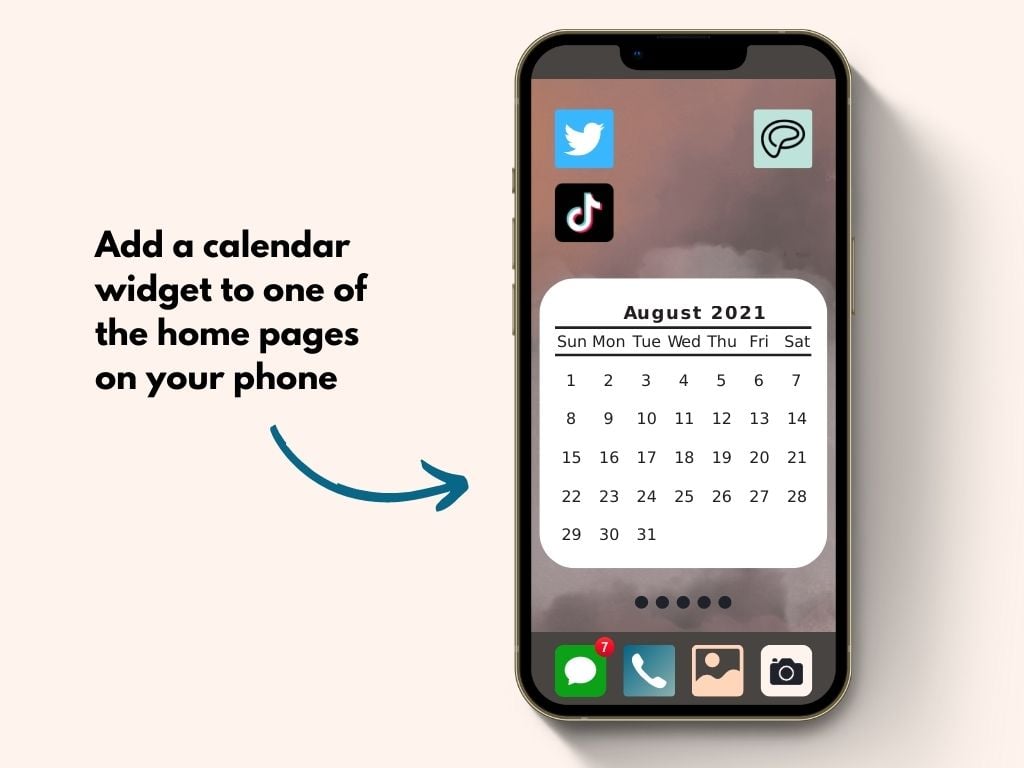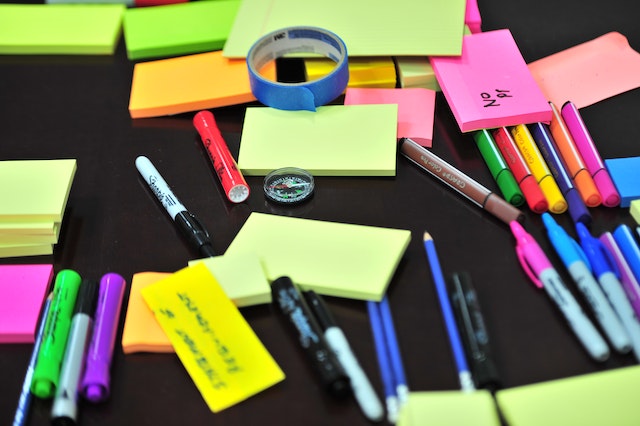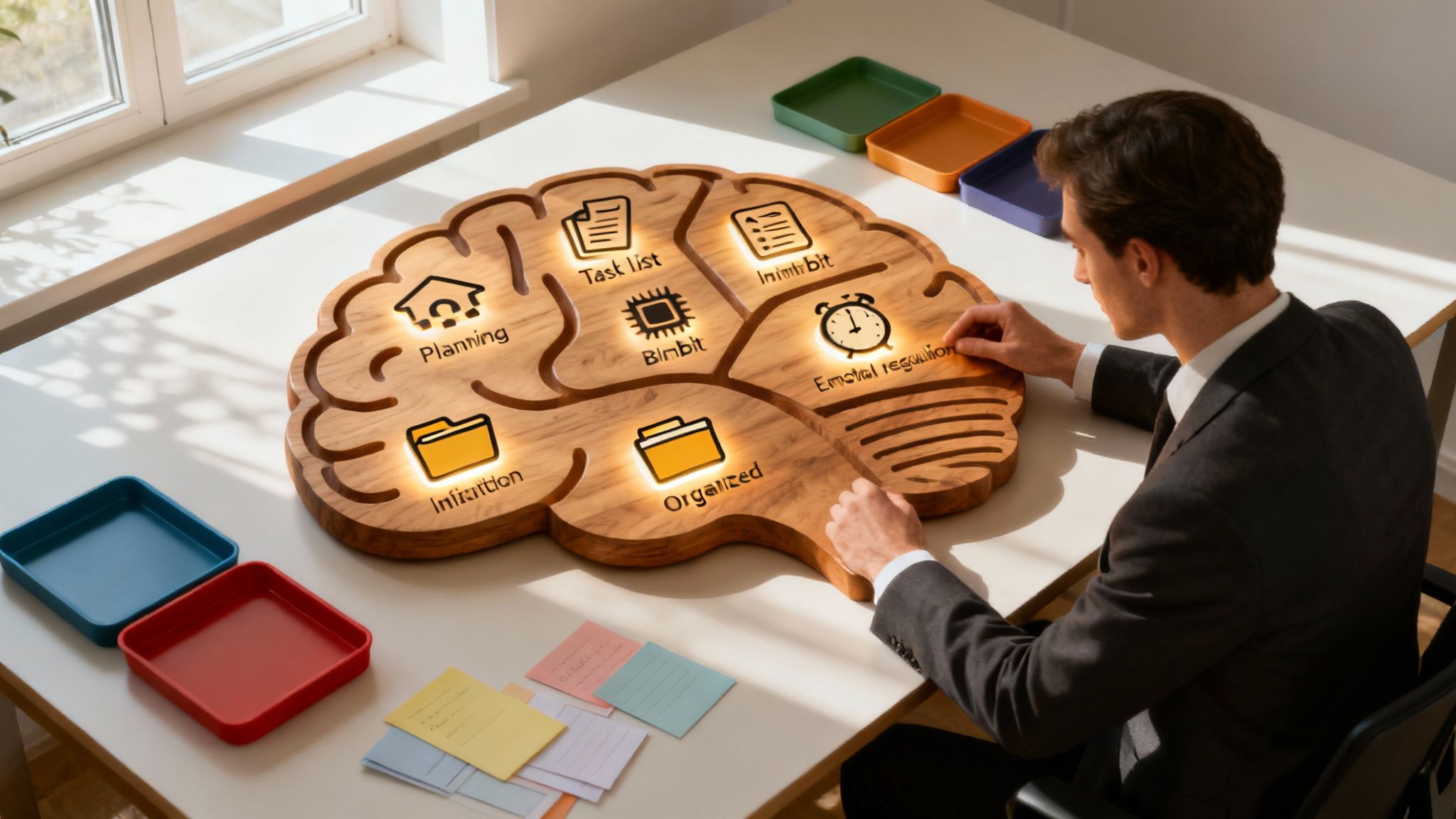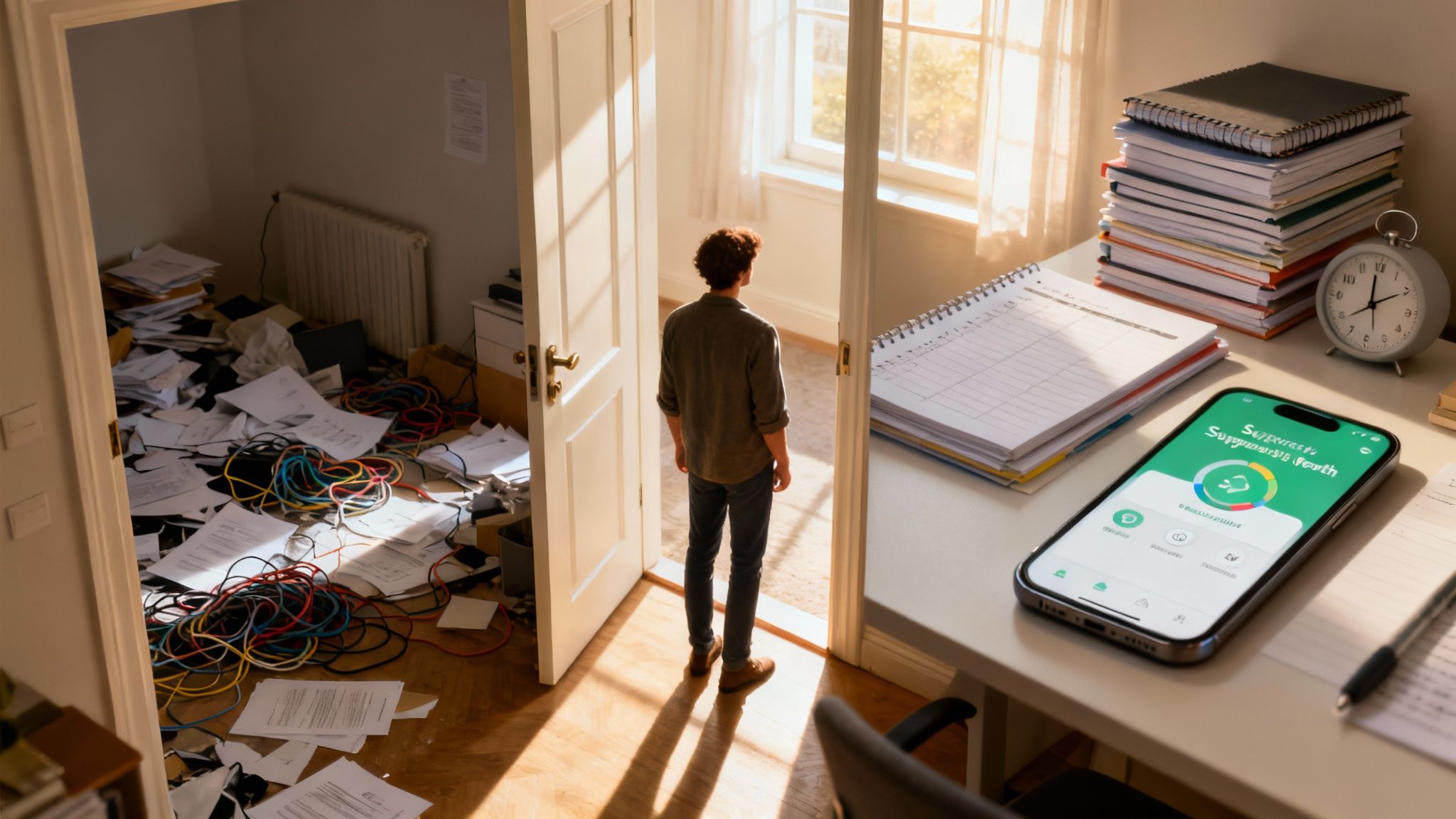Everyone forgets things sometimes. But if you have ADHD, it may happen more frequently than your neurotypical peers. It's not uncommon for people with ADHD to forget about things like appointments, putting bills in the mail, important dates — sometimes we even forget the rest of the story we were telling... right in the middle of telling it. (Wait - what was I talking about?)
If you have ADHD and you’re forgetful, don’t beat yourself up about it. ADHD brains are prone to memory issues, and we have tips to help set you up for success.
Too long; didn’t read
- People with ADHD have reduced activity in the area of the brain that regulates short-term memory, working memory capacity, and learning 4
- Working memory is separate from long-term and short-term memory, but it is directly correlated to memory storage in long-term memory 1,3
- There are several ways you can improve forgetfulness, including the use of technology, routines, and other strategies
ADHD and memory
ADHD is associated with short-term and long-term memory problems, as well as working memory deficits. Working memory temporarily stores your brain’s short-term information and monitors incoming information to replace old or unimportant information.1 This is what’s supposed to give you the ability to remember recently-acquired information while multitasking.
Once the information has passed through your working memory, it heads to your long-term memory for further processing and storage, usually while we’re sleeping.2 Generally speaking, our long-term memory holds information that successfully made it past the working memory to be stored for later use.3
Prefrontal cortex (PFC) activity
There are many theories why people with ADHD have memory issues, the most common involving the reduced activity that’s been observed in the prefrontal cortex of ADHD brains.4 This area maintains the attention span needed for short-term memory and learning tasks. A weakened prefrontal cortex can make it challenging to remember things.
🧠 ADHD research:
Children with ADHD have a harder time developing long-term memory skills. These challenges often carry into adulthood.5
Forgetting words
People with ADHD tend to forget words or “lose their train of thought” because of a conflicting relationship between information processing speed and verbal working memory capacity.6
In other words, we tend to be fast-talkers with an inability to “hold on” to the main idea of the story we’re telling, because our capacity is compromised.
How to improve your ADHD forgetfulness
There may not be an exact recipe to stop being so forgetful, but there are a lot of helpful methods to make sure it doesn’t negatively impact your life. Remember that the ADHD brain loves novelty, so set yourself up for success by trying a new system.
1. Use technology

Use your Google Calendar or iCal to your advantage and set up multiple reminders for a single event — one day, one hour, and 10 minutes before the event (or any desired time intervals).
If you have an iPhone or Samsung, you can set your calendar as a large widget on your home screen to show what’s on your agenda for the week.
2. Create a landing pad
Put a bowl or tray near your front door to act as a hub for your keys, wallet, and whatever else you want.
If you need to bring something you normally don’t take with you, set a reminder to put it by the launchpad so it’s hard to miss. Now it will be easier to put that letter in the mail or finally put your reusable bags back in your car.
3. Build a routine
Creating a routine is one a simple tip that goes a long way. You can start just by going to bed at the same time every night.
Doing the same things in the same order every day can save you a lot of bandwidth you can use for remembering other things.
4. Write it down

Outside of the obvious benefit that you can look at it later, writing things down really does help you remember them.7
Make sticky notes the backbone of your household. They’re obviously useful for grocery lists and appointment reminders, but don’t overlook them for little pep talks or a place for a quick brain dump.
5. Leave it unread
Resist the urge to open an email or a text message you don’t have time to reply to right now.
That little notification will remind you to get back to it soon. (Don't erase it, or you might end up accidentally ghosting your friends.)
6. Do it right away
If you keep forgetting the same thing, try completing the task right when it’s assigned to you. If you put something off too long, it can become a bigger and scarier task. Just do it right away.
It might end up only taking a few minutes.
7. Consider professional assistance
If you’re still having a hard time forgetting things and it’s interfering with your life, consider talking to a professional about it. Cognitive Behavioral Therapy - CBT - goes a long way to help create and establish systems that work for you and your unique challenges.
Additionally, ADHD coaches or accountability coaches can help to lead you in the right direction regarding personalized coping strategies.
Final thoughts: it’s not the end of the world
The above tips can help you to not forget things so easily, but it’s also important to remember that your forgetfulness isn’t going to cause the collapse of the modern world. The most important piece of advice I can give you?
Be kind to your brain.
I’ve had to get out of the habit of calling myself “a mess” or “dumb” when I forget things. Self-deprecating humor might seem funny at first, but eventually the brain begins to believe those words, even if you don’t really mean it when you say.
Forgetting things is annoying, yes — but being mean to yourself for forgetting something isn’t going to make you go back in time and remember it. It’s just going to make you sad while you wander around your house looking for your keys.








